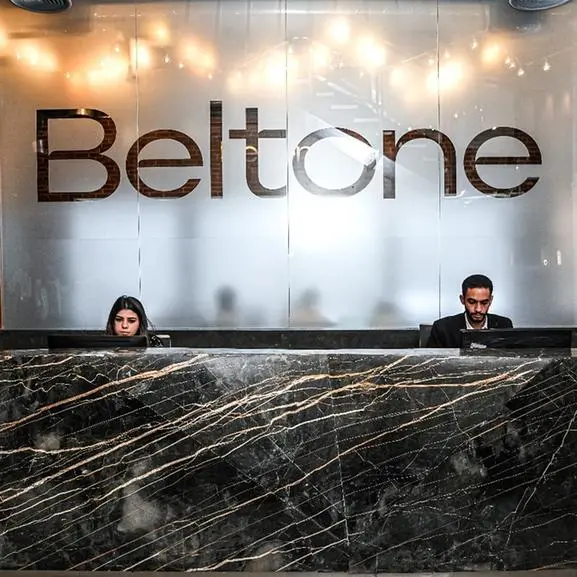PHOTO
Geneva-based World Economic Forum (WEF) collaborated with Abu Dhabi Digital Authority, Dubai Future Foundation and Saudi Aramco, among others, to launch a Blockchain toolkit this week to meet the challenges arising from supply chain failures.
Crises such as the coronavirus pandemic, dramatically increase pressure on governments and businesses to maintain resilient supply chains, the blockchain toolkit will not only help supply chains but also help boost economic recovery in the post-COVID19 market, according to a statement from the WEF – a non-profit organization promoting public-private cooperation.
The Redesigning Trust: Blockchain Deployment Toolkit aims to enable leaders to maximize the benefits and minimize the risks of the technology. “Resilience in supply chains depends on trust, transparency and integrity, which can be improved through the responsible deployment of blockchain technologies that offer a ‘shared truth’,” it said.
The first of its kind toolkit is the culmination of more than a year of efforts to capture best practices from blockchain deployment across industries. Drawing on the global expertise of more than 100 organizations – including governments, companies, start-ups, academic institutions, civil society, international organizations and technology and supply chain experts – the toolkit helps companies manage the complexities of deploying this new technology and will accelerate its positive impact, it added.
Nadia Hewett, World Economic Forum USA’s Project Lead for Blockchain and Digital Currency, believes the toolkit will help small players who may not have access to the resources required to unlock the value of blockchain technology.
“For this reason, the toolkit can level the playing field for small and medium-sized enterprises. There are many lessons to learn from the current pandemic and this toolkit is a starting point for improving long-term pandemic preparedness and accelerating an economic recovery led by public-private cooperation,” she said.
The toolkit has been piloted in a variety of different contexts by organizations developing blockchain solutions within their supply chains, including the Abu Dhabi Digital Authority (ADDA), Hitachi, Saudi Aramco as well as at SMEs.
Dr Abdulla Al Kendi, Executive Director at ADDA for Technologies and Policies Sector, said the Blockchain toolkit helped his organization to move forward quickly on their implementation strategy. “The toolkit provided a lot of objectivity when attempting to design a consortium. We were able to put our judgements and decisions aside to design the consortium,” he said.
ADDA has aligned its projects with the UAE’s federal Blockchain strategy, which aims to conduct 50 per cent of the nation’s government transactions using Blockchain by 2021.
As ADDA was facing challenges developing a full set of guidelines for blockchain technology, it identified a clear use case for the toolkit and tested it with the Centre for the Fourth Industrial Revolution UAE, applying the World Economic Forum’s Blockchain toolkit questions to drive the development of ADDA’s own guidelines and implementation strategy.
With the guidance of the toolkit, ADDA was able to clearly articulate the business problems that could be solved using blockchain technology and ensure that all the stakeholders of a given chain are aligned in achieving these business objectives.
While experimenting with the toolkit, ADDA learned that those looking to develop their own blockchain strategies should consider three key aspects of blockchain implementation – the required governance, personal data protection, and the interoperability of the chains.
The UAE has been using Blockchain technology to drive innovation and efficiency and hence it collaborated with the experts at the World Economic Forum to develop the toolkit.
Khalfan Belhoul, CEO of Dubai Future Foundation, said: “Through the UAE Centre for the Fourth Industrial Revolution (C4IR UAE) we develop solutions to our current and future challenges and COVID-19 has shown us that there is a real and urgent need to accelerate the implementation of these technologies. The C4IR UAE has contributed to the World Economic Forum Blockchain for Supply Chain Toolkit.”
The toolkit offers tangible next steps to implementing a Blockchain system for greater transparency, visibility and accountability across supply chains, added Belhoul.
In the Kingdom of Saudi Arabia, the oil giant Saudi Aramco utilized the newly developed Blockchain toolkit to aid in completing two critical use cases in supplier management and credential verification.
In the first case, Saudi Aramco identified a solution to the long and time-consuming processes of supplier management, which can be utilized in wide spectrums of industry challenges that cannot be resolved with the current technologies such as swift supplier on-boarding and real-time supplier information.
The second use case was to identify an adoption strategy for credential verification and assurance of degree authentication, which is expected to greatly reduce the verification time and prevent certificate and degree fraud. In both use cases the toolkit provided Saudi Aramco with a clear checklist to ensure all areas and aspects are covered during the planning and implementation.
(Writing by Syed Atique Naqvi, editing by Seban Scaria seban.scaria@refinitiv.com)
Editing by Seban Scaria
#UAE #SAUDI #BLOCKCHAIN #COVID19 #FINTECH
Disclaimer: This article is provided for informational purposes only. The content does not provide tax, legal or investment advice or opinion regarding the suitability, value or profitability of any particular security, portfolio or investment strategy. Read our full disclaimer policy here.
© ZAWYA 2020





















